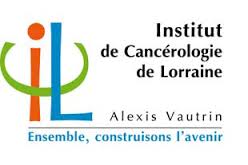Clinical and histological features of second breast cancers following radiotherapy for childhood and young adult malignancy
Résumé
Objective: The purpose of this study was to determine the characteristics of early second breast cancer (SBC) among survivors of childhood and young adult malignancy treated with irradiation.
Methods: We conducted a multicenter retrospective study of women who presented with breast cancer aged 50 years or younger in nine French centers.
Results: 121 patients and 141 SBC were analyzed (invasive = 130; non-invasive = 11). The mean age at first cancer diagnosis was 15 years and at initial SBC diagnosis was 38 years. Bilateral disease before the age of 51 years was diagnosed in 16% of the females. The majority of SBC were invasive carcinomas (92%). Among the invasive carcinomas, 39% had a histoprognostic score of III, 3.1% overexpressed HER2 and 29% were triple negative. The proportion of triple negative phenotype SBC was higher in patients older at first cancer diagnosis [RR = 1.2, 95% CI (1.1-1.3)]. 94% of triple negative SBCs developed in breast tissue which had received >20 Gy.
Conclusion: We found a high proportion of aggressive SBC following thoracic radiotherapy in childhood or early adulthood. Advances in knowledge: SBC screening is recommended by scientific societies for these child/young-adulthood cancer survivors in the same way as the one for high risk women because of constitutional mutations. Our results support these recommendations, not only because of a similar cumulative risk, but also because of the aggressive histological characteristics.

